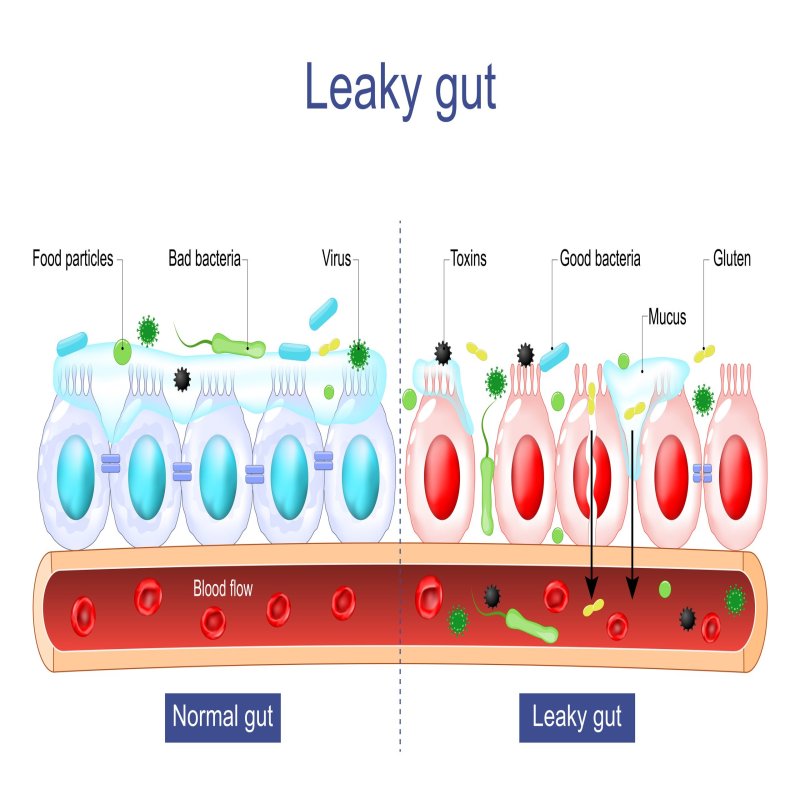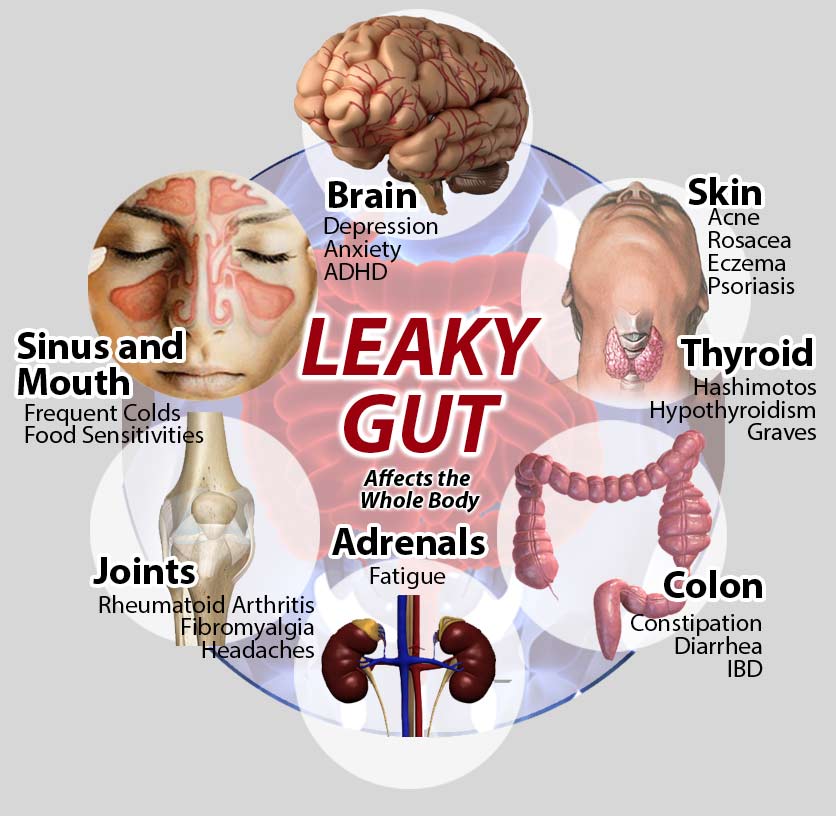
We all know that we have an intestinal lining inside our digestive system. When functioning correctly, the intestinal lining forms a protective barrier that regulates what enters the bloodstream. The gut lining may have large holes or cracks if it is not functioning properly. This can allow partially digested foods, toxins, and insects to pass through the tissues beneath the intestinal lining. This is known as a leaky gut. This can lead to inflammation and alterations in the normal gut bacteria that can cause problems in the digestive system and beyond. Leaky gut syndrome is one of the most rapidly developing conditions that people worldwide have been facing in recent times.
What is a Leaky Gut?
A leaky gut is a condition in which the lining of the gut is damaged for a specific reason. The lining of your intestine is made up of hundreds of millions of cells. Each cell joins together to form a strong barrier that acts as a safety net and controls what gets absorbed into your bloodstream and what stays outside. When you have a leaky gut, your gut lining has been damaged and is no longer able to function properly as a barrier. The small holes in your gut become bigger, allowing harmful substances such as gluten, bacteria, and unprocessed food to enter your body and cause significant damage to your health. These holes allow toxins and bacteria to seep into your bloodstream. This can lead to inflammation in your gut and throughout your body, causing a chain reaction of issues, including:
- Chronic diarrhea
- Constipation or bloating
- Nutritional deficiencies
- Fatigue
- Headache
- Confusion, difficulty focusing
- Skin issues (acne or eczema)

Click here to learn more about Leaky Gut and how Functional Medicine can help.
What Causes Leaky Gut Syndrome?
Leaky gut syndrome can be caused by a variety of factors, including: ·
- Nutritional deficiencies: long-term deficiencies in zinc, vitamin A, and vitamin D can lead to the development of this condition.
- Increase in Sugar Intake: high intake of sugar, particularly fructose, GMO foods, dairy products, and grains can also contribute to the development of leaky gut syndrome, as well as other gastrointestinal conditions.
- Stress: long-term stress can lead to Leaky Gut Syndrome, especially if it’s sustained for an extended period.
- Excessive Alcohol Intake: People who drink alcohol regularly are more likely to develop Leaky Gut Syndrome.
Diseases Caused by Leaky Gut
Celiac Disease: Celiac disease is a type of autoimmune disease that affects the immune system. It can lead to digestive problems, fatigue, skin problems, and nutritional issues. This disease is caused by eating gluten. Gluten is a protein found in grains like wheat, barley, and rye. When you eat gluten, your body triggers an immune response that causes inflammation and damage in your small intestine.
Ulcerative colitis: Ulcerative colitis is caused by inflammation in the lining of the large intestine. This inflammation causes the lining of the colon, rectum, or both to become inflamed, leading to the formation of small sores known as ulcers. These ulcers can cause bleeding and the release of mucus or pus.

Crohn’s disease: It is characterized by inflammation of your digestive lining, which can often extend to the deeper parts of your digestive system. Crohn’s usually attacks the small intestine but can also affect your large intestine and, rarely, your upper gastrointestinal tract. It can cause symptoms like diarrhea, abdominal pain, fatigue, and weight loss.
Inflammatory Bowel Syndrome: IBS is a long-term condition that affects the digestive system. The gastrointestinal tract is the part of the body that contains the stomach, intestines, and large intestine. IBS causes abdominal cramping and pain. It can also cause bloating and gas. Some people with IBS also experience diarrhea or constipation.
How to Heal a Leaky Gut?
Dietary habits that can improve gut health include eating foods high in prebiotic fibers, like vegetables and whole grains, reducing consumption of processed meats, dairy products, and eggs, and avoiding added sugars and artificial sweeteners and foods that may trigger allergies or sensitivities, such as gluten or dairy.
Other lifestyle changes that can help improve digestion and support gut health include exercising regularly, getting enough sleep, reducing stress levels, avoiding unnecessary antibiotics, and quitting smoking.
![]()
Conclusion
If you have the condition, it starts in your digestive system, but it can also affect other parts of your body. This can further lead to serious health complications, and hence it is very important to include some of the dietary and lifestyle modifications to protect your gut and your overall health.
Reference
- https://www.gastroenterologyandhepatology.net/archives/may-2024/leaky-gut-syndrome-myths-and-management/
- https://www.verywellhealth.com/leaky-gut-syndromeintestinal-permeability-89258
- https://www.health.com/leaky-gut-syndrome-7559740
- https://www.health.harvard.edu/blog/leaky-gut-what-is-it-and-what-does-it-mean-for-you-2017092212451
- https://www.verywellhealth.com/treatment-for-leaky-gut-7973275
- https://www.webmd.com/digestive-disorders/features/leaky-gut-syndrome
- https://www.eatingwell.com/sneaky-signs-of-leaky-gut-syndrome-8421526
- https://www.medicalnewstoday.com/articles/326117
- https://www.forbes.com/health/conditions/leaky-gut-syndrome/
- https://www.health.harvard.edu/diseases-and-conditions/what-is-leaky-gut-syndrome


.png)


